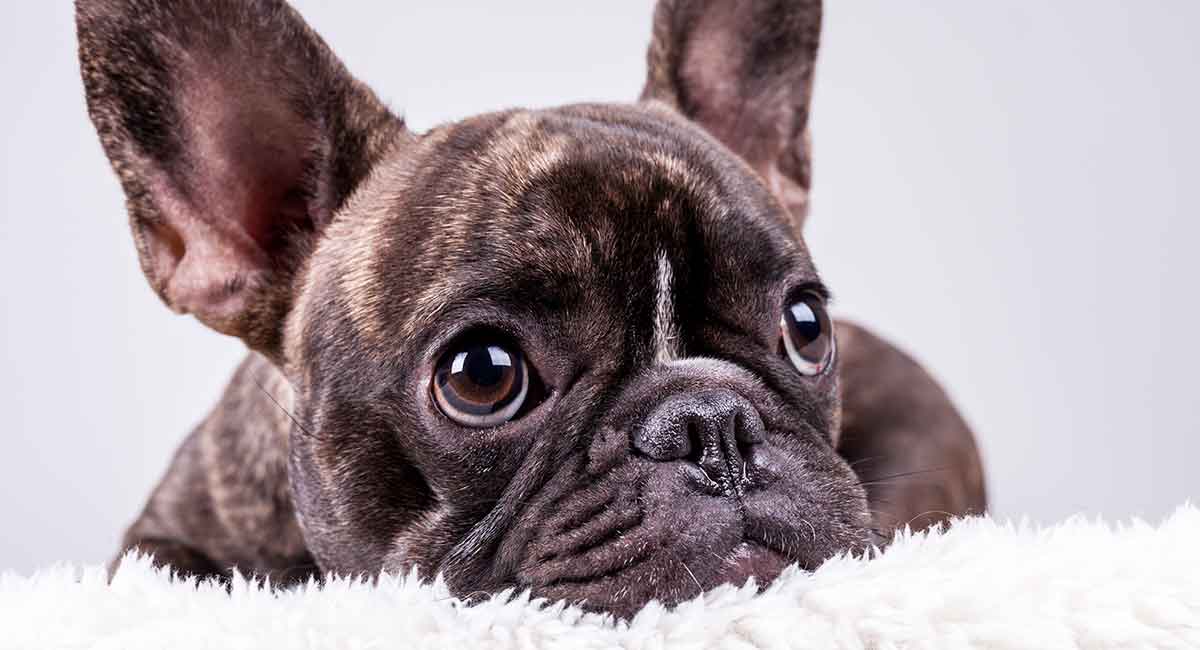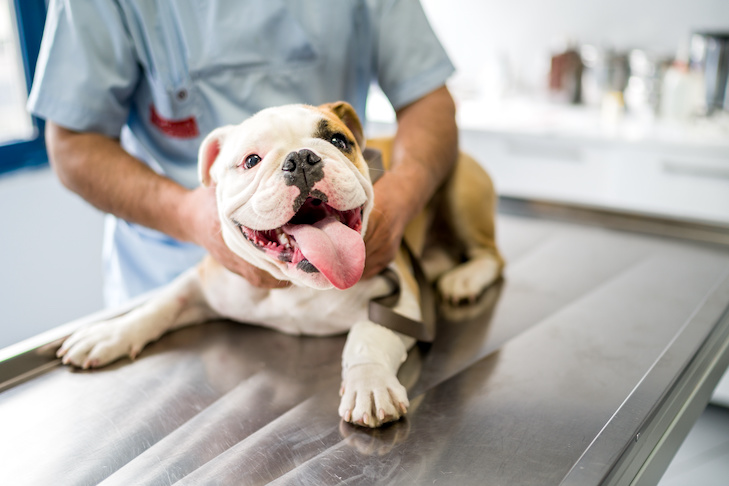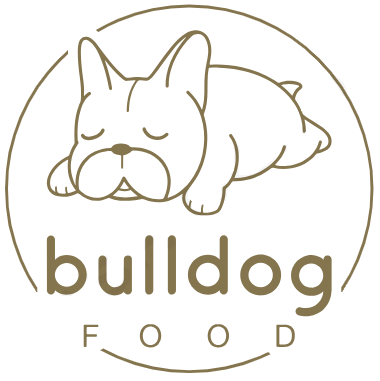
” Why is my Frenchie shaking ?” It’s a question that often sends a ripple of concern through any French Bulldog owner. Seeing your beloved French Bulldog (Frenchie) shaking can be alarming. Owners often worry when they see their dog trembling without an obvious cause. It’s essential to understand that shaking can be due to various reasons, some benign and others requiring immediate attention.
Why is my frenchie shaking ?

There are several reasons why your French Bulldog might be shaking. Let’s explore the most common causes:
A. Fear and anxiety
Fear and anxiety are among the leading causes of shaking in French Bulldogs. Like humans, dogs can experience feelings of fear and stress, leading to shaking reactions. This often occurs when they encounter new situations, loud noises (like fireworks or thunder), or when facing uncomfortable experiences such as veterinary visits.
Research from the University of Lincoln, UK, shows that French Bulldogs, due to their small size, may be more prone to stress in noisy or crowded environments. This can lead to shaking as a natural defense mechanism.
B. Cold and environmental temperature
Your French Bulldog shakes when it’s cold. Their small body and short fur can’t keep them warm like bigger dogs. Body tremors help them regulate temperature. To check if your Frenchie is cold, touch the inside of its ear. If it feels cool, your dog might be chilly.
French Bulldogs are sensitive to cold due to their brachycephalic (flat-faced) structure. This affects their ability to warm air as they breathe in. In winter, watch for signs of discomfort like shivering or seeking warm spots.
C. Pain and discomfort
Shaking can also be a sign that your French Bulldog is experiencing pain or discomfort. This could be due to various causes such as injury, arthritis, or internal issues.
A study from the University of Helsinki, Finland, has shown that French Bulldogs are at high risk for bone and joint problems due to their unique body structure. This can lead to pain and shaking, especially in older dogs.
D. Medical conditions and health issues
Shaking can be a symptom of various medical conditions in French Bulldogs. Some common diseases include:
– Hypoglycemia: Dogs may shake when their blood sugar levels are too low.
– Addison’s disease: A condition where the adrenal glands don’t produce enough hormones, which can cause shaking.
– Neurological disorders: Issues with the nervous system can lead to uncontrolled shaking.
According to a report from the British Veterinary Association, French Bulldogs are at high risk for certain genetic diseases, including neurological conditions that can cause shaking.
E. Old age and functional decline
As French Bulldogs age, they may start shaking due to the decline of bodily functions. This could be related to muscle weakness, loss of motor control, or cognitive issues.
A long-term study from the University of California, Davis shows that about 28% of dogs over 11 years old may experience cognitive dysfunction syndrome, a condition similar to Alzheimer’s in humans, which can cause shaking and other symptoms.
F. Happiness and Excitement
Your Frenchie might shake when happy or excited. This often happens when:
- You come home
- It’s time for a walk
- Play time starts
- Meal time approaches
This shaking is normal. It’s your dog’s way of showing joy. French Bulldogs are known for their expressive nature. Their compact bodies often quiver with excitement.
Key points:
- Excitement shaking is usually brief
- It’s accompanied by other happy behaviors (wagging tail, jumping)
- This type of shaking stops when the exciting event ends
If the shaking seems excessive or doesn’t stop, it might indicate another issue. Always monitor your Frenchie’s behavior patterns to distinguish between normal excitement and potential problems.
G. Poisoning
Your Frenchie may shake if poisoned. Common toxins include:
– Fertilizers
– Human medicines
– Rodent poisons
– Cleaning products
– Some flea and tick treatments
Watch for these signs:
1. Shaking or tremors
2. Vomiting
3. Bloody urine
4. Loss of appetite
5. Stomach pain
6. Extreme tiredness
French Bulldogs are curious and may accidentally ingest harmful substances. Their small size makes them more vulnerable to toxins.
H. Distemper
Distemper is a dangerous virus that attacks your Frenchie’s lungs, gut, and brain. Signs include shaking, eye and nose discharge, coughing, vomiting, and loss of appetite. Your dog may become depressed or even die.
Protect your Frenchie with vaccines. The distemper shot is a core vaccine given to puppies. It’s vital for their health.
Key points:
– Highly contagious
– Affects multiple body systems
– Can be fatal
– Preventable through vaccination
If you notice these symptoms, consult your vet immediately. Early treatment can make a difference.
Treatment and Management Approaches

Once you’ve identified the potential cause of your French Bulldog’s shaking, you can take appropriate steps to address it. Here are some effective strategies:
A. Reducing Stress and Anxiety
If stress or anxiety is causing your Frenchie to shake, creating a calm environment is crucial. This might involve providing a safe space, using pheromone diffusers, or in some cases, consulting with a veterinary behaviorist.
A study in the Journal of Veterinary Behavior found that the use of pheromone products reduced anxiety-related behaviors in 74.5% of dogs, demonstrating the effectiveness of this approach.
B. Adjusting Environmental Temperature
French Bulldogs are notoriously sensitive to temperature extremes. Ensure your home is kept at a comfortable temperature, provide warm bedding in colder months, and never leave your Frenchie in a hot car or outside for extended periods in extreme weather.
Research published in the journal Animals showed that brachycephalic breeds like French Bulldogs are at higher risk of heat stress, emphasizing the need for careful temperature management.
C. Pain Management and Treatment of Medical Conditions
If pain or an underlying medical condition is causing the shaking, it’s essential to work with your veterinarian to develop an appropriate treatment plan. This might involve pain medication, specific treatments for diagnosed conditions, or lifestyle adjustments.
A study in the Journal of Small Animal Practice found that early intervention in cases of chronic pain in dogs led to improved outcomes in 87% of cases, highlighting the importance of prompt treatment.
D. Special Care for Senior Dogs
Older French Bulldogs may require extra attention. This could include providing orthopedic bedding, adjusting their diet, or incorporating supplements to support joint health.
Research in the Veterinary Journal demonstrated that a combination of dietary supplements and appropriate exercise could significantly improve mobility in 78% of senior dogs with osteoarthritis, a common cause of shaking in older dogs.
When to Consult a Veterinarian

While some causes of shaking can be managed at home, others require professional medical attention. Here’s when you should seek veterinary care:
A. Serious Warning Signs
If your French Bulldog’s shaking is accompanied by symptoms like difficulty breathing, loss of consciousness, or signs of extreme pain, seek emergency veterinary care immediately.
A survey of emergency veterinary clinics found that 22% of cases involving shaking as a primary symptom were diagnosed with life-threatening conditions, emphasizing the importance of prompt action.
B. Unusual Frequency or Intensity of Shaking
If your Frenchie’s shaking becomes more frequent or intense than usual, or if it doesn’t respond to your usual management techniques, it’s time to consult a vet.
Research in the Journal of Small Animal Practice showed that persistent or worsening shaking was associated with progressive medical conditions in 63% of cases, highlighting the need for professional evaluation.
FAQS
Q : Can over-exercising cause shaking in a French Bulldog, and how much exercise do they need?
A : Yes, over-exercising can cause shaking in French Bulldogs. Due to their brachycephalic anatomy, they are prone to respiratory issues and overheating. So ” how much exercise does a french bulldog need ?” They typically require about 20-30 minutes of moderate exercise per day, split into shorter sessions to prevent exhaustion and ensure their well-being.
Q : How can I tell if my French Bulldog’s shaking is due to anxiety?
A : Signs of anxiety in French Bulldogs can include shaking, passive behavior, or other indicators like excessive barking, jumping, or startle reactions. If you suspect your dog is experiencing anxiety, try reducing stimuli and creating a calmer environment to help them feel safe and more relaxed.
Q : If a French Bulldog eats something they shouldn’t, can they start shaking, and what foods should Frenchies avoid?
A : French Bulldogs can experience shaking or negative reactions if they ingest foods that are toxic or harmful to them. The question is ” what can frenchies not eat ?” : Foods to avoid include chocolate, raisins, onions, garlic, caffeine, alcohol, and certain nuts like macadamia nuts. These foods can cause digestive upset, toxicity, or other health issues in French Bulldogs. To ensure their health, keep these foods out of their reach and only provide them with safe food options.
Conclusion
In conclusion, understanding ” why is my Frenchie shaking ?” requires careful consideration of various factors. It could be due to excitement, anxiety, discomfort, or underlying health issues. Observing the frequency and triggers of shaking, providing a calm environment, and seeking veterinary advice are crucial steps in ensuring your French Bulldog’s well-being. For more information on caring for your French Bulldog and tips on reducing anxiety and improving health, visit our resources page or book an appointment with a professional veterinarian.

At bestfoodforfrenchbulldog.net, Frenchie Feast Co is dedicated to providing the best information and advice on nutrition and food for French Bulldogs. We understand that every dog has unique nutritional needs, especially breeds like the French Bulldog. Therefore, we continually research and seek out optimal nutritional solutions.
CEO Lincoln Martin is not only the founder of BestDogFoodForDachshunds.net but also a proud Dachshund parent. With a deep understanding of the unique dietary needs of Dachshunds, Lincoln Martin is committed to helping fellow dog owners make informed decisions about their pets’ nutrition.
Driven by a love for animals and a desire to share valuable insights, our team works tirelessly to research and curate the most reliable and up-to-date information on dog food, health, and care. From reviewing the latest products to offering practical tips and advice, we strive to be your trusted source for everything Dachshund-related.
Whether you’re a new Dachshund owner or a seasoned enthusiast, you can trust the expertise and dedication of the team at BestDogFoodForDachshunds.net to support you on your journey of providing the best care for your furry friend.
